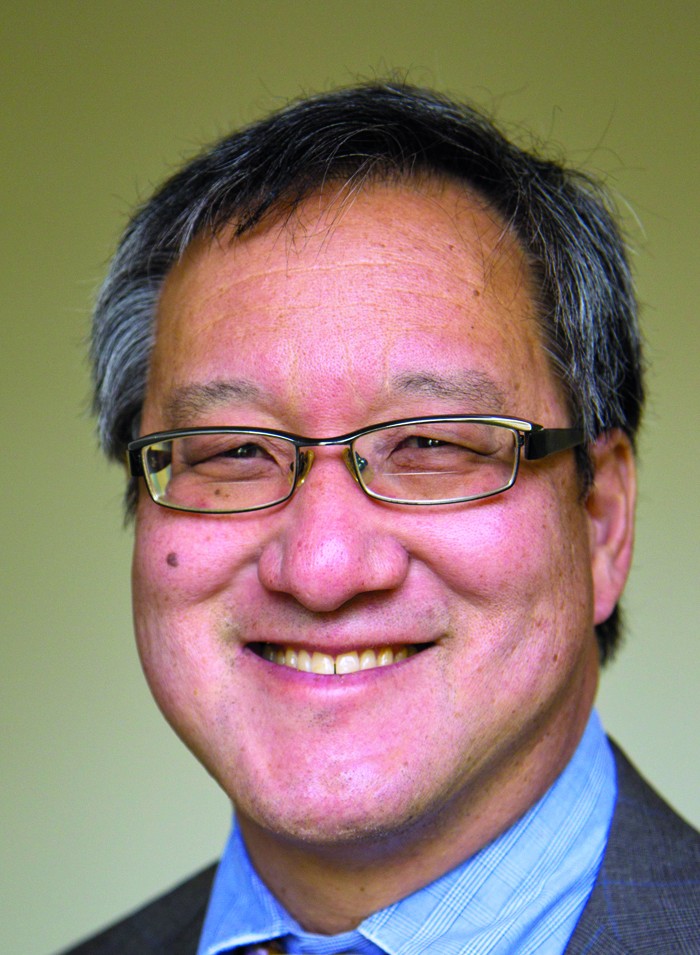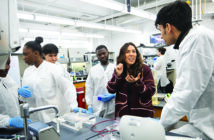Yu fights cancer, one byte at a time.
After living and working more than two decades in the heart of Silicon Valley, it follows that medical
oncologist and hematologist Peter Yu ’ 77 M D’80 believes information technology can help advance cancer care. But the importance of new thinking is a concept he learned at Brown.
“Being part of such a new medical school, grafted on top of a 200-year-old institution … when I look at what I am doing now, that’s the root of it: that things don’t have to be the way they always were. We need creative solutions,”
he says.
As president-elect of the board of the American Society of Clinical Oncology (ASCO), Yu plans to use his leadership position to push for innovations in cancer research and care delivery, with a focus on understanding the cultural and ethnic diversity that affect care.
“We think of infectious diseases when we hear the term ‘global health,’ but recent statistics have shown that the fastest rising cause of mortality in the world is cancer, even in low-resource countries,” says Yu, who practices at the Palo Alto Medical Foundation in Sunnyvale, CA.
But all cancers are not the same. For example, he says, hepatitis B causes many liver cancers worldwide, but obesity and fatty liver may be a primary risk factor in the US. “We need to know more about the basic causation, the drivers of cancer in a particular patient,” he says. “Global collaboration can help us understand those nuances in the United States, with its ethnically diverse population.”
Yu worries that the decline in federal research spending, and increasing reliance on corporate and private dollars, will exacerbate health disparities, as philanthropists and industries fund cancers to which they have a personal connection or whose treatment has the most commercial potential—often diseases more likely to afflict Caucasians.
That’s why ASCO is delving into the world of big data with CancerLinQ, which is now under development. It will follow a “rapid-learning health system model,” Yu says, to amass oncologists’ medical records to “create apps and other support tools to take that knowledge and accelerate it into patient care.”
“ASCO will pull data into a central data repository so it can be shared, analyzed, andaggregated to drive research questions and find answers faster than randomized clinical trials, which are slower and more expensive,” he says. This, in turn, could make care more affordable and accessible. “Our hope is the rapidly expanding knowledge base … will allow us to be much more guided in how we direct our research and fruitful in the products of our research,” he says.
CancerLinQ will ultimately close the loop, as providers bring the data back to the bedside. “Care delivery is really where the rubber meets the road,” Yu says. “All this leads to nothing if you don’t actually apply it to taking care of patients.”




